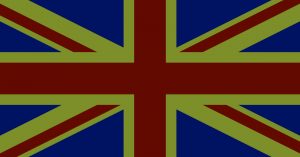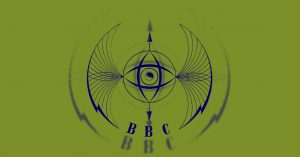Crime and punishment chronology
Russ J Graham 12 February 2022 0Crime and its punishment in Britain in the 1950s

Stanley Setty murder
Donald Hume is sent to prison for dumping the dismembered body of Stanley Setty over the Essex marches from a light aircraft.
Leonard Thomas and Bernard Catterall murders
George Kelly is sentenced to death for his part in a robbery-murder at the Cameo Cinema, Wavertree. He is innocent.
Klaus Fuchs
Atomic physicist Klaus Fuchs is imprisoned for supplying atom bomb details to the Soviet Union.
10 Rillington Place murders
Timothy Evans is hanged for the murder of his daughter and, by implication, his wife. He is innocent.
Eliza Woods murder
James Corbitt is hanged for murdering his mistress, Eliza Woods. His hangman is Albert Pierrepoint, who is also the landlord of Corbitt's regular pub.
Stone of Scone
Scottish nationalist students steal the Stone of Scone, used during the coronation of Scottish and English monarchs, from Westminster Abbey.
Stone of Scone
The Stone of Scone is found in Forfar.
Docks strike
Seven dock workers accused of being ringleaders of industrial action are acquited of breaking a leftover wartime regulation preventing strikes.
Cambridge Spies
Donald Maclean and Guy Burgess, two senior UK intelligence operatives, disappear.
ID cards
After protests at the prosecution of Harry Willcock who refused to produce his National Identity Scheme card after being randomly stopped, the government announce that the law will no longer be enforced. It is repealed on 22 May 1952.
Alan Turing
After a burglary at his home exposed that he was in a sexual relationship with another man, war hero and inventor of the computer Alan Turing is convicted of gross indecency and sentenced to be chemically castrated.
Eastcastle Street robbery
A gang holds up a Post Office van in London and steal £287,000. They are never caught.
Claerwen Dam
A Welsh nationalist group attempt to blow up the pipeline taking water from behind the Claerwen Dam in Wales to customers in Birmingham, England. It is unsuccessful.
EⅡR postboxes
The first postbox erected in Scotland with the royal cypher reading "EⅡR" is vandalised because the Queen is not the second with the name Elizabeth in Scotland. This will become more common as time passes; eventually the design will be modified to remove the Ⅱ.
Sidney Miles
Derek Bentley is hanged for shouting "let him have it, Chris" at Christopher Craig, the murderer of PC Sidney Miles, most likely meaning "hand the gun over". He is postumously pardoned in 1993 and the conviction overturned in 1998.
10 Rillington Place
The remains of three women are found at 10 Rillington Place in London, casting doubt on the guilt of recently-hanged Timothy Evans and pointing to John Christie instead.
10 Rillington Place
John Christie is sentenced to death for the murder of his wife. A total of eight bodies were found in his house.
10 Rillington Place
John Christie is hanged in Pentonville.
Piltdown Man
The 1912 fossil of a "missing link" between apes and humans known as 'Pildown Man' is exposed as a hoax.
The Montagu Trial
After an 8-day trial, Lord Montagu, Peter Wildeblood and Michael Pitt-Rivers, who were observed kissing other men at an exclusive party, are sent to prison for buggery. Montagu is sentenced to a year; Wildebood and Pitt-Rivers to 18 months.
Donald McGill
Donald McGill, the cartoonist of saucy seaside postcards, is convicted of breaking the 1857 Obscene Publications Act, effectively outlawing such bawdy comic material. The government announces plans to overhaul the law.
David Blakely
Ruth Ellis is hanged for murdering her abusive lover David Blakely. The outcry from the public makes her the last woman to be hanged in the UK.
Kim Philby
Harold 'Kim' Philby is named as the 'Third Man' in a Soviet spy ring within British intelligence by US papers. This allegation is ignored.
Kim Philby
Labour MP for Brixton Marcus Lipton names Harold 'Kim' Philby as the 'Third Man' in a debate in the House of Commons. The allegation is ignored.
Kim Philby
The Foreign Secretary, Harold Macmillan, denies in the House of Commons that Harold 'Kim' Philby is part of a Soviet spy ring.
Cambridge Spies
Donald Maclean and Guy Burgess, UK intelligence officers who went missing in 1951, are seen in Moscow, USSR.
Hanging
A Commons private member's bill with tacit government support that would abolish the death penalty is voted down in the House of Lords.
John Bodkin Adams
Scotland Yard send detectives to Eastbourne to investigate society doctor John Bodkin Adams amidst allegations that he had killed 400 patients over many years.
John Bodkin Adams
Society doctor John Bodkin Adams is arrested for the murder of Edith Morrell, one of his patients.
Contempt of Parliament
John Junor, editor of the Sunday Express, is summoned to the House of Commons and forced to apologise for, correctly, saying that petrol ration allocations were higher for political party workers and MPs than for ordinary citizens.
Homicide Act
Partially in response to the hanging of Derek Bentley, the law is revised to allow a plea of diminished responsibility and the death penalty to be restricted to primary aggravated murder, subsituting life imprisonment for all other homicides.
John Bodkin Adams
Society doctor John Bodkin Adams is found not guilty of murder amidst allegations that senior political figures had pressured the court into that verdict.
The Merry Widow of Windy Nook
Mary Wilson, 69, is sentenced to hang for poisoning two of her four husband (she had also poisoned the other two but the crimes had gone undetected). She is reprieved and sent to prison for life instead.
Notting Hill riots
The first night of rioting by white fascists against the presence of West Indian Britons in area. The police arrest both the rioters and the Black Britons who engaged them.
Legitimacy Act
The law is changed to allow illegitimate children to be made legitimate by their parents subsequently marrying.
Obscene Publications Act
The Obscene Publications Act gains royal assent, which managed to both tighten up and liberalise the law on 'dirty' publications.
Mental Health Act
The Mental Health Act gains royal assent, defining mental illness for the first time, deinstutionalising some mental health provision and removing reasons for putting someone in an asylum that had previously included promiscuity and having illegitimate children.
About the author
Dr Russ J Graham is Transdiffusion's curator



